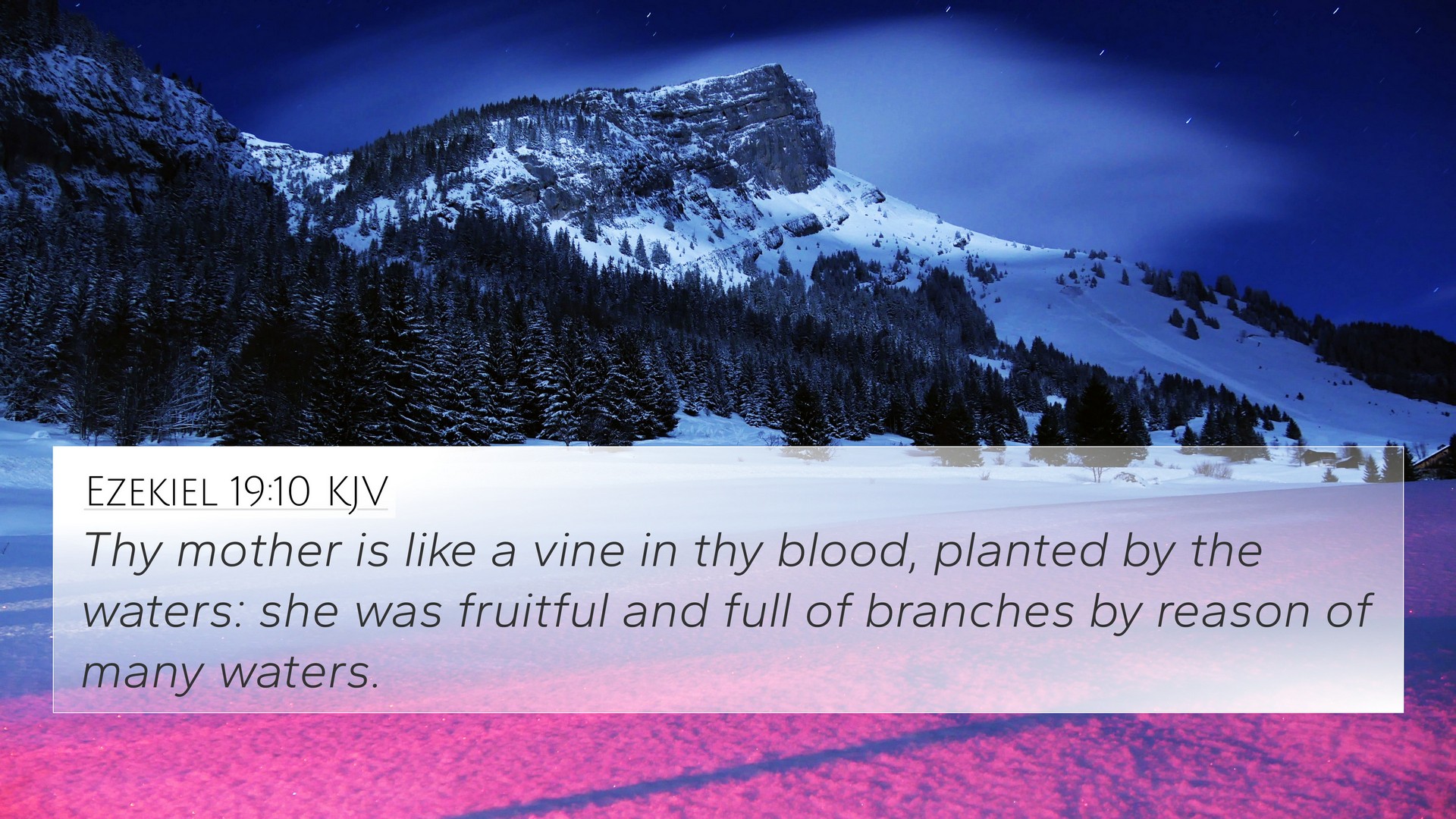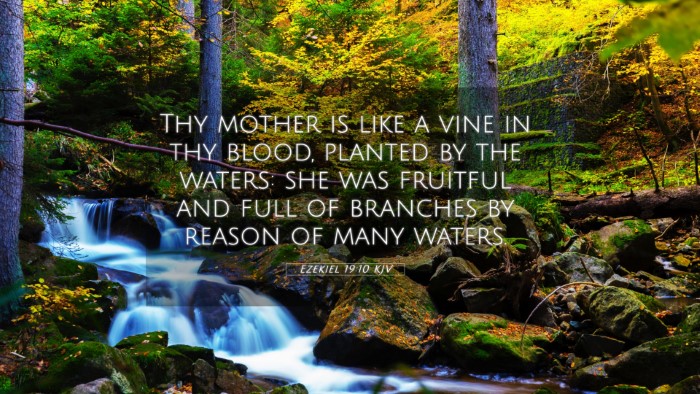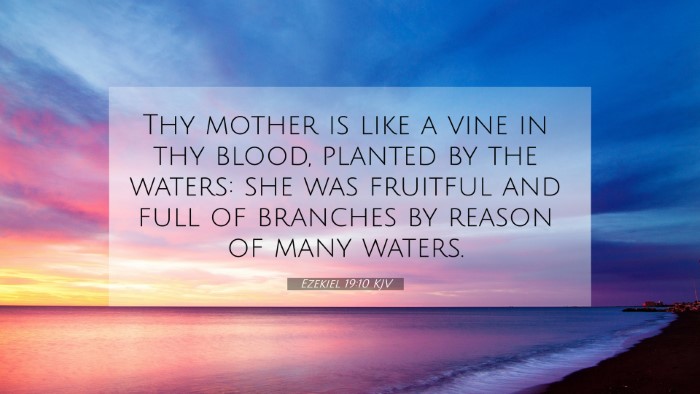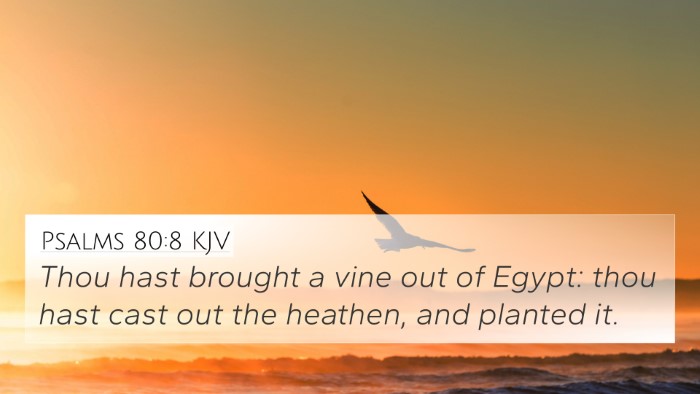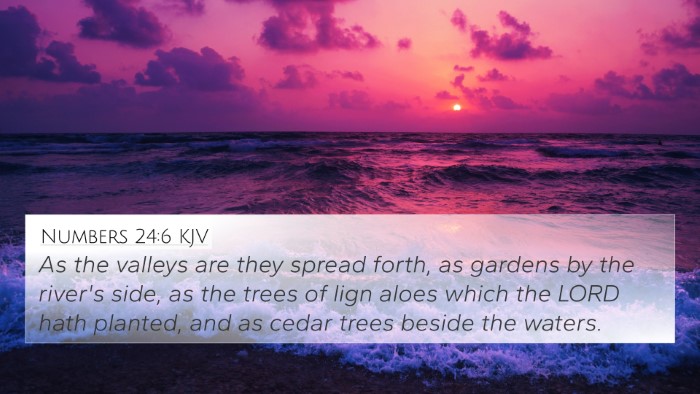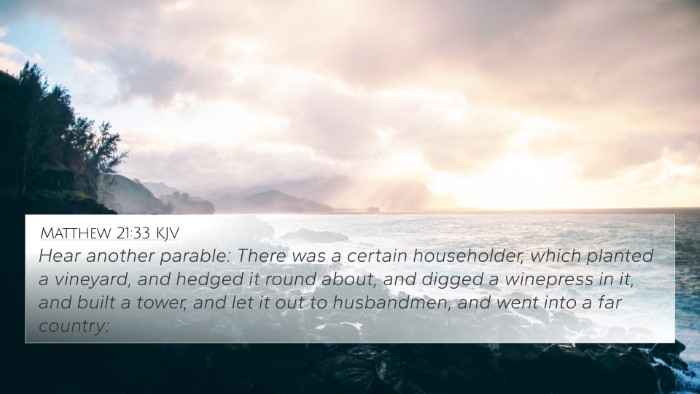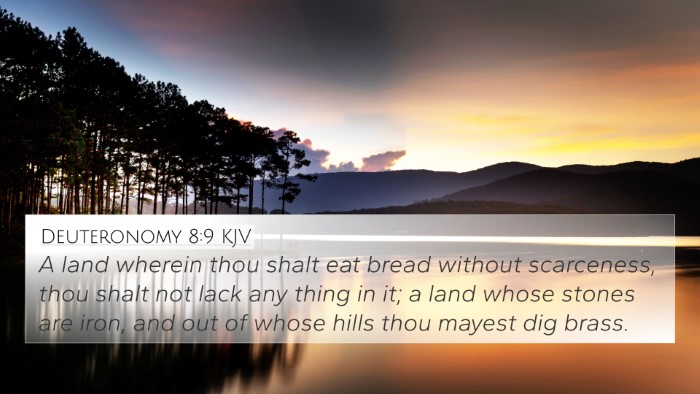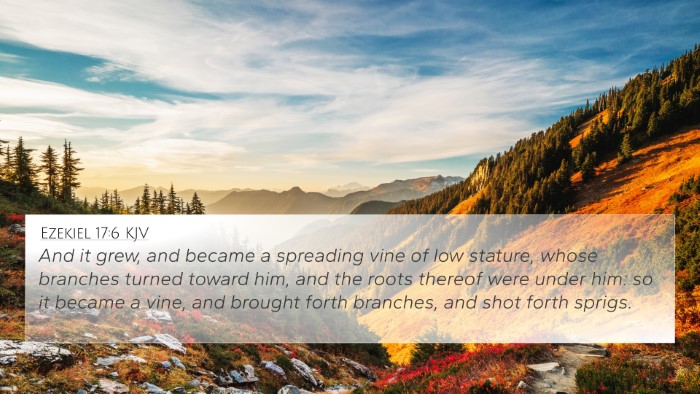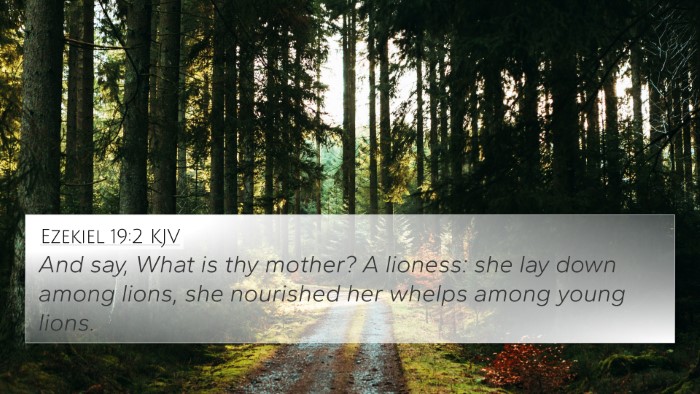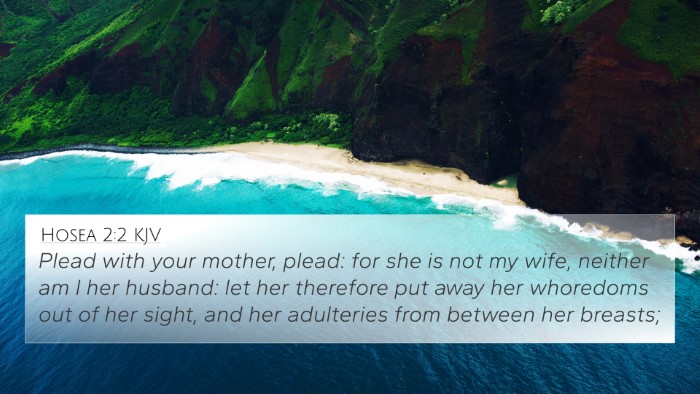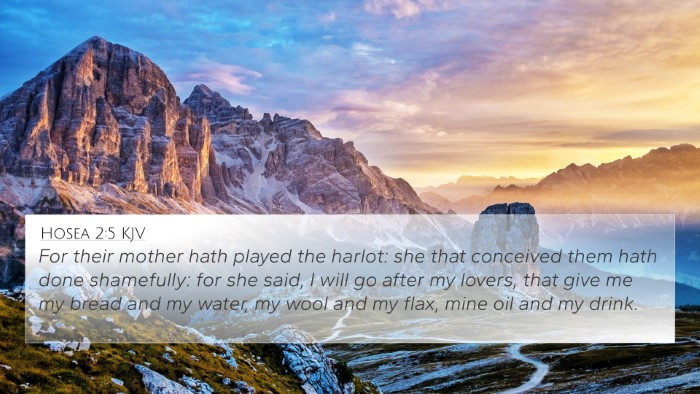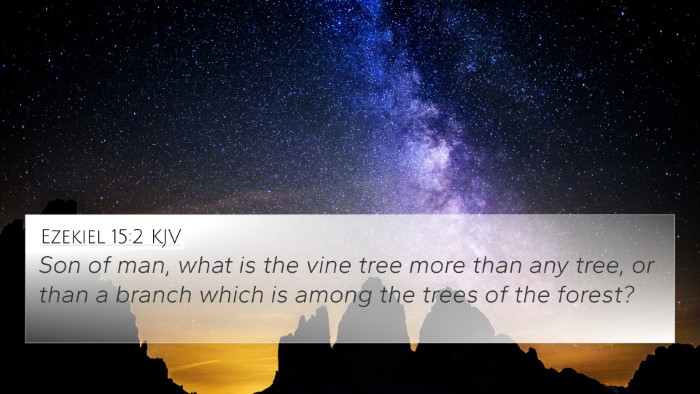Ezekiel 19:10 - Meaning and Interpretation
The verse Ezekiel 19:10 states: "Your mother was like a vine in your blood, planted by the waters: she was fruitful and full of branches by reason of many waters." This passage serves as a poignant metaphor, illustrating the nurturing and vibrant relationships provided by the mother, often interpreted as the nation of Israel itself.
Contextual Overview
Ezekiel prophesies during a time of great distress for Israel. The metaphor of a vine represents growth, prosperity, and potential. The imagery of being "planted by the waters" indicates that the vine, akin to the nation of Israel, had abundant resources and means to flourish, yet faced declines due to disobedience and the impending divine judgment.
Commentary Insights
-
Matthew Henry:
Matthew Henry emphasizes the ideal conditions given to Israel, equating the vine with the people of God. The "many waters" symbolize the sustenance and divine provision available to them. However, the metaphor becomes tragic, as despite these provisions, the vine is doomed due to the eventual rebellion and departure from God's commandments.
-
Albert Barnes:
Albert Barnes notes that the vine's fruitfulness represents Israel's potential to produce good fruit, i.e., righteousness and faithfulness to God. He draws attention to the contrast between the initial vitality and the later desolation of the nation, likely foreshadowing the exile and Israel's loss of favor with God.
-
Adam Clarke:
Adam Clarke focuses on the role of the vine as a symbol of the family and nation. He interprets this imagery as an allegory of the people of Israel, who were supposed to be fruitful but ultimately failed due to their unfaithfulness. Clarke elucidates the communal aspect, highlighting how the decline of one can lead to the decline of the whole.
Related Bible Cross-References
- Psalms 80:8-11: Discusses Israel’s plantation by God and the expectation of fruitfulness.
- Isaiah 5:1-7: The song of the vineyard, comparing Israel to a vineyard that failed to yield good grapes.
- John 15:1-6: Jesus as the true vine emphasizes the importance of abiding in Him for spiritual fruitfulness.
- Hosea 10:1: A metaphor of Israel as an empty vine, indicating their lack of faithfulness.
- Jeremiah 2:21: God speaks of planting Israel as a choice vine, now corrupted.
- Matthew 21:33-41: The parable of the wicked husbandmen reflects the theme of neglect and judgment on the vine.
- Romans 11:17-22: Paul's teaching about the olive tree signifies the extension of the covenant to the Gentiles, paralleling the idea of fruitful branches.
Thematic Connections
Understanding Ezekiel 19:10 in a broader context sheds light on key Biblical themes:
- Divine Provision: The imagery of abundant waters reflects God's continuous nurture and care for His people.
- Fruitfulness and Judgment: The expectation of fruitfulness leads to discussions on God's judgment when His people fail to live up to His standards.
- Israel’s Covenant with God: The spiritual implications of the vine emphasize Israel’s relationship with God, including both blessings and consequences.
Comparative Bible Verse Analysis
This verse connects richly with others throughout Scripture, demonstrating a consistent narrative regarding God’s people:
- Connection with Isaiah: The vine metaphor appears in Isaiah’s prophetic imagery, underscoring national disobedience and resultantly, desolation.
- Linking with New Testament Teachings: The New Testament reaffirmation through Jesus as the true vine reinforces the continuity of this metaphor beyond its Old Testament roots.
- Thematic Bible Verse Connections: Revealed patterns show the threads of fruitfulness tied to obedience and the dire results of unfaithfulness recurring throughout scriptures.
Utilizing Bible Cross-Referencing Tools
The importance of cross-referencing texts lies in uncovering deeper meanings by viewing biblical verses in relation to one another. Bible concordances or cross-reference Bible study guides are effective tools for:
- Identifying connections between the Old and New Testaments.
- Finding intertextual themes across different books.
- Providing a broader interpretative framework for understanding individual verses in context.
Conclusion
Ezekiel 19:10 serves as a powerful reminder of the expectations God has for His people. The metaphor of the vine illustrates the call to bear fruit and the heartbreak of divine sorrow when His chosen people stray. Engaging in thematic cross-referencing enriches our understanding of this verse, inviting deeper contemplation and connection with the overarching narrative of Scripture.
